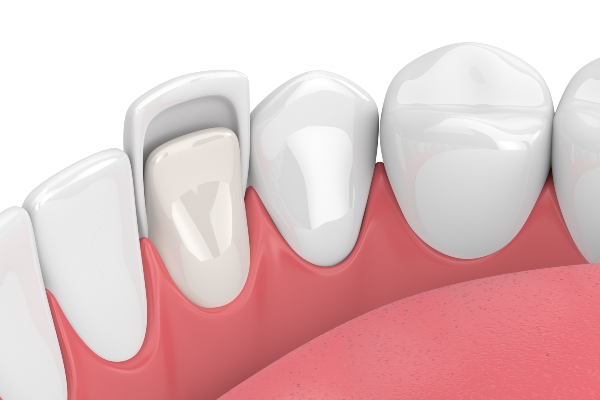Questions to Ask at Your Dental Implants Consultation

Deciding to get dental implants can be nerve-racking and exciting at the same time. Knowing as much as you can about the procedure can help clear up any apprehension. These restorations are durable and lasting. Understanding what to do while talking and chewing will be helpful. If you want to learn some pointers about speaking and eating with dental implants, here are some questions and answers for your consultation.
What foods should the patient avoid after getting dental implants?
Some foods can interfere with the critical process of osseointegration. These foods could also cause the titanium rods to dislodge before they could even attach. Avoiding these foods will help in the fusion of the dental implants to the jawbone. Spicy, crunchy, sour, and sweet foods can irritate the surgical site.
Cold, hot, and sticky foods can add to the pain or dislodge the implants. Alcoholic beverages can prevent the proper oxygenation and circulation of blood. This could interfere with the proper healing of the surgical wound. It might cause the fusion of the implants and jawbone to delay.
What should the patient eat after the surgery?
The pain medication and anesthesia may cause the patient’s appetite to delay. Eating can resume as soon as the patient feels hungry. Soft foods will not interfere with the site’s healing. These foods will not dislodge the implants either.
Pudding, eggs, milkshakes, and soup are fine. Drinking plenty of water will help flush away food particles and buffer bacterial acids. It keeps the tissues hydrated as healing happens. Water strengthens the immune system and helps the surgical site heal better.
How can the patient get enough nutrition after dental implant surgery?
It can be exciting to start going back to one’s normal diet with dental implants. Even so, it is still important to get the right nutrients while healing. Eating and drinking regularly can help the patient’s nourishment to recover right away. Protein supplements can help in faster tissue healing.
Patients with diabetes must check sugar levels regularly. Maintaining normal eating habits can help keep an eye on the patient’s blood sugar levels. This is critical in preventing infection. It can also prevent other complications like implant failure.
Why should the patient get more protein after getting dental implants?
Protein is important in healing. It is a nutrient that can repair and build up tissues after an injury or surgery. It also helps the body fight infection. Amino acid-rich foods can help the body get the building blocks it needs to rebuild the lost tissue.
What should a person do if the patient does not have an appetite after the procedure?
It is normal for some patients not to have an interest in eating after the dental implant surgery. The patient may be quite nervous about eating. The anxiety may be due to the fear of damaging or hurting the affected site. The dentist will provide the right medications for pain management. Some cold foods can help soothe the area as well.
Will dental implants change the way the patient speaks?
Dental implants are foreign bodies in the mouth. They change the bite and the chew of the mouth. Adapting to these new components may take time. The most important thing to do is practice as much as possible. The tongue will need to feel the new dental landscape. Normal speech will return when the tongue learns.
Some slurring is natural while the tongue learns in the presence of dental implants. It has something to do with how the mouth opens and closes. Forming words needs good coordination between the tongue, teeth, and gums. Swelling and pain will be obstacles to proper speech. Natural speech will start to return once the aches disappear.
Are talking exercises necessary?
Speech exercises must take place after getting dental implants. It is much like practicing speech with new retainers or braces. This time it will be practicing with new teeth. The fit may seem awkward at first. The mouth will adjust as the speech exercises continue.
Practicing speech is like a form of physical therapy for patients with dental implants. There will be mouth exercises and movements for training the mouth with new teeth. Adjustments will come as the exercises keep going. There will be a faster return of natural speech with frequent practice.
Getting dental implants involves changes in eating and speaking that you can adjust to
Having new restorations comes with changes. These changes include food choices and speech exercises. Adapting to the changes is necessary. Your dentist can help you with this step. Over time, your normal diet and speech will return while enjoying your new dental implants.
Are you considering getting dental implants in the Hackensack area? Get more information at https://www.smilebeautification.com.
Check out what others are saying about our dental services on Yelp: Dental Implants in Hackensack, NJ.
Recent Posts
One of the leading tooth replacement choices dentists and patients are opting for is dental implants. When it comes to tooth replacement, evaluating the different options can sometimes seem overwhelming. However, with dental technology becoming more advanced and available for people with one or more missing teeth, there is an option for almost everyone. This…
Dental implants have always been the most stable restorations you could ever have. They are a level higher than traditional dentures or fixed bridges. Each implant mimics the basic structures of a natural tooth. It is stable on its own. Imagine what it would be like to have them replace your dental arches. If you…
Dental implants enable you to get as close as you can get to replacing your natural teeth roots, both in terms of function and health benefits. Dental implants require regular care like your natural teeth, which is the only way to ensure that your implant-supported teeth can last a lifetime. Read on to learn about…
A consistent oral hygiene routine is necessary for anyone who has dental implants. While tooth decay cannot affect implants themselves, the area still requires routine cleaning to prevent gum disease and even infection. Failure to do so can also cause staining of the prosthetic tooth and an unsightly appearance. If the tissues surrounding the implant…


